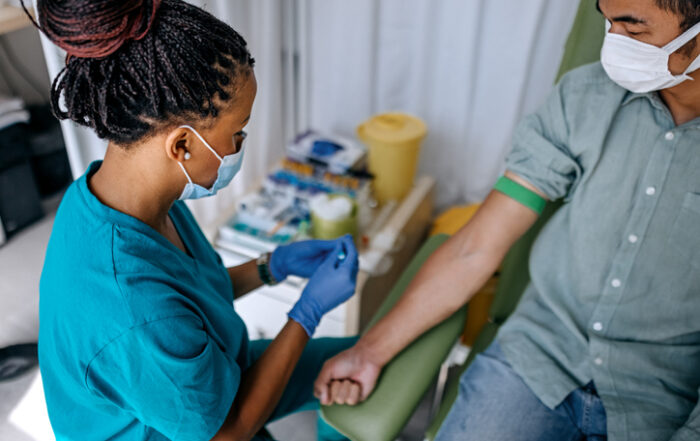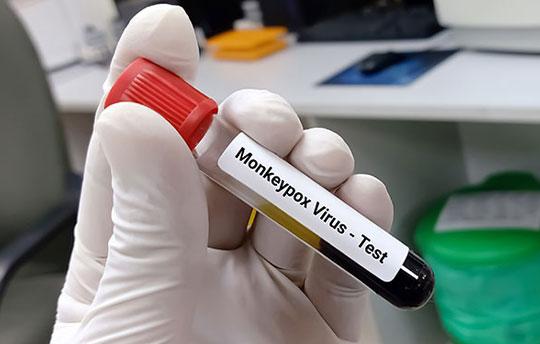The HOPE Clinic
HIV/AIDS Outpatient Primary Care and Early Intervention Services
HOPE Clinic is a a Ryan White HIV/AIDS Program Medical Provider. We provide a continuous, comprehensive system of care that includes primary medical care and essential support services for people living with HIV/AIDS who are uninsured, insured, or underinsured.
HOPE Clinic services include:
Call HOPE Clinic for more information and free, confidential support:
- (205) 614-6071 – HIV Testing and Counseling
- (205) 614-6182 – PrEP Information
- (205) 758-2644 – HIV and/or Hepatitis C Care and Treatment
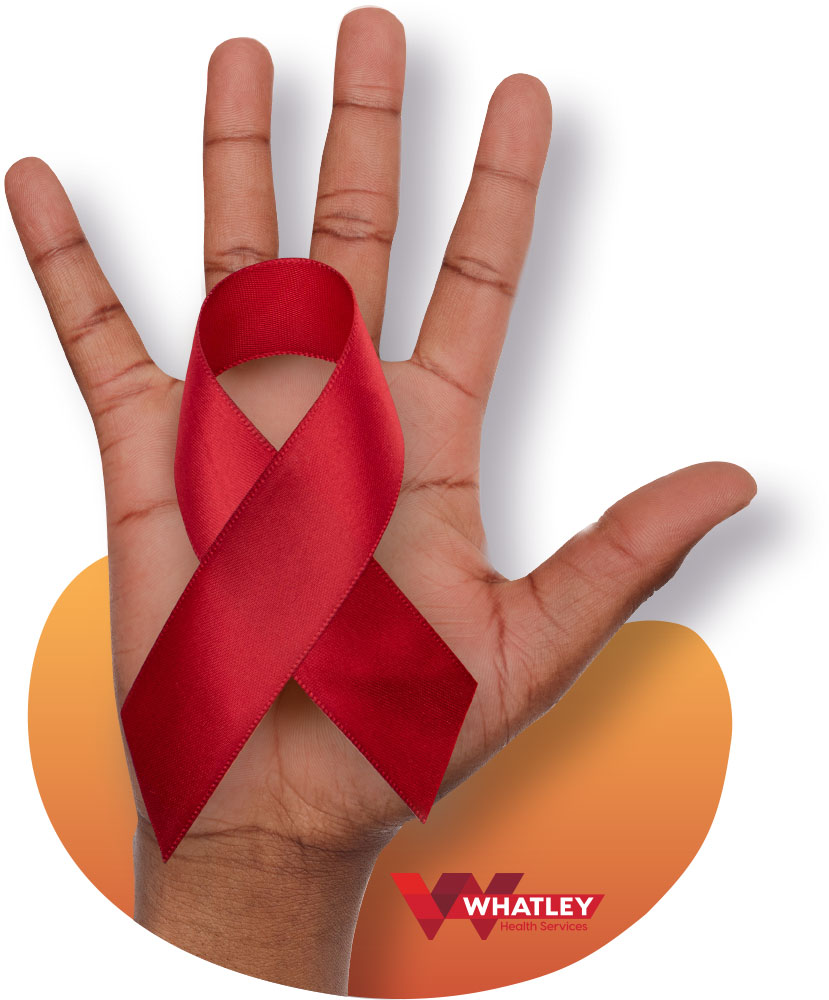
HIV: Are You At Risk?

The risk of getting HIV varies depending on your type of exposure or behavior (such as sharing needles or having sex without a condom). Also, some exposures to HIV carry a much higher risk of transmission than other exposures.
Find out if you’re at risk right now:
- 1Take the quiz to find out your level of risk for HIV infection.
- 2Answer the questions (no one will know it’s you)
- 3Click “submit” to get see your level of risk.
Your responses are ANONYMOUS .
News and Stories
Raising Awareness on National Black HIV/AIDS Awareness Day
National Black HIV/AIDS Awareness Day is observed on February 7th to raise awareness of the impact of HIV on the African American community. Although progress has been made in reducing HIV rates within Black communities, barriers such as racism, [...]
7 Things to Know About Getting Tested for HIV
The only way to know for sure whether you have HIV is to get tested. Knowing your status is important because it helps you make healthy decisions to prevent getting or transmitting HIV. 1. Who Should Get Tested? CDC [...]
2022 Monkeypox Outbreak: What You Should Know
What You Need To Know Monkeypox is a rare disease caused by infection with the monkeypox virus. Monkeypox virus is part of the same family of viruses as variola virus, the virus that causes smallpox. Monkeypox symptoms are similar [...]

HIV Frequently Asked Questions
In 2019, an estimated 34,800 new HIV infections occurred in the U.S. In fact, approximately 1.2 million people in the U.S. have HIV. More than one in ten of those people don’t know it and need testing.
HIV has had a greater impact on racial and ethnic minorities, and gay, bisexual, and other men who have sex with men. However, anyone who has been or if currently sexually active should get tested for HIV every six months.
Learn more by watching the short videos below and by selecting a question to reveal its answer.

HIV (human immunodeficiency virus) is a virus that attacks the body’s immune system. If HIV is not treated, it can lead to AIDS (acquired immunodeficiency syndrome).
There is currently no cure. Once people get HIV, they have it for life, but with proper medical care, HIV can be controlled. People with HIV who get effective HIV treatment can live long, healthy lives and protect their partners.
Some people have flu-like symptoms within 2 to 4 weeks after infection (called acute HIV infection). These symptoms may last for a few days or several weeks. Possible symptoms include:
- Fever
- Chills
- Rash
- Night sweats
- Muscle aches
- Sore throat
- Fatigue
- Swollen lymph nodes
- Mouth ulcers
However, some people may not feel sick during acute HIV infection. Other illnesses can also cause these symptoms, so they do not necessarily indicate you have HIV. Getting tested is the only way to know for sure. See a healthcare provider if you have these symptoms and think you may have been exposed to HIV.
Ultimately, HIV is a virus that attacks the immune system and AIDS is a term that can only be used when HIV has caused severe damage to the immune system.
Every person who has AIDS has HIV, but not every person with HIV will develop AIDS. Since there are now many treatment options available to people living with HIV, far fewer people are developing AIDS. Those who develop AIDS are often those who never had HIV tests did not take their medication(s) as prescribed, or never underwent treatment. Once started on HIV treatment, death due to AIDS can be prevented.
HIV can be transmitted through blood, semen, rectal fluids, vaginal fluids, and breast milk of a person living with HIV who has a detectable viral load (measurement of the virus in the bloodstream).
For transmission to occur, the HIV in these fluids must get into the bloodstream of an HIV-negative person. This can happen through a mucous membrane (inner lining of body cavities), open cuts or sores, or by direct injection, such as sharing needles, syringes, or other drug injection equipment.
Transmission can also occur when a pregnant person living with HIV passes HIV to their unborn child. This is defined as perinatal transmission.
HIV can affect anyone regardless of sexual orientation, race, ethnicity, gender, age, or where they live. However, certain groups of people in the United States are more likely to get HIV than others because of certain factors; including the communities in which they live, what subpopulations they belong to, and their risk behaviors.
- Communities. When you live in a community where many people have HIV, the chance of being exposed to HIV by having sex, sharing needles, or other injection equipment with someone who has HIV is higher.
- Subpopulations. In the United States, gay, bisexual, as well as men who have sex with men, are the populations most affected by HIV.
- Risk behaviors. In the United States, HIV is spread mainly through having anal or vaginal sex, by sharing needles or syringes with an HIV-positive partner.
Testing positive for HIV can feel overwhelming. However, it is important to remember that HIV can be treated with medicines that help people with HIV live longer, healthier lives and reduce their risk of transmission.
The first step after testing positive for HIV is to see a healthcare provider, even if you do not feel sick. Prompt medical care and treatment with HIV medicines is the best way to stay healthy and prevent HIV progression to AIDS.
If a test result is negative, no antibodies for HIV were detected. A negative test result can also indicate that a person is not infected with HIV or that a person has been exposed but their immune system has not had time to produce antibodies. False negative results may occur when a person is tested within the first few weeks after transmission.
If you feel that you are at an increased risk of acquiring HIV, contact your healthcare provider for additional testing and to discuss PrEP as a preventative measure to reduce risk of acquiring HIV.
HIV prevention tools are more accessible today than ever before. You can use strategies such as abstinence, never sharing needles, and using protection every time during sex. You may also be able to take advantage of HIV prevention medicines such as pre-exposure prophylaxis (PrEP) and post-exposure prophylaxis (PEP).
Pre-exposure prophylaxis (PrEP) is a medication taken to prevent HIV. PrEP, taken once daily, is highly effective for preventing HIV.
- PrEP reduces the risk of getting HIV by about 99% when taken as prescribed.
- Although there is less information about how effective PrEP is among people who inject drugs, we do know that PrEP reduces the risk of getting HIV by at least 74% when taken as prescribed.
- PrEP is much less effective when it is not taken as prescribed.
Most insurance plans and state Medicaid programs cover PrEP. There are also other programs that provide PrEP for free or at a reduced cost:
- Ready, Set, PrEP makes PrEP medication available at no cost to those who qualify.
- Co-pay assistance programs help lower the out-of-pocket costs of PrEP medications for those who are insured. Income is not a factor for eligibility.
- PrEP assistance programs cover medication for uninsured patients who qualify.
If you have HIV, there are many actions you can take to prevent transmitting HIV to others.
- Get and keep an undetectable viral load. If you take HIV medicine and get and keep an undetectable viral load, you have effectively no risk of transmitting HIV to an HIV-negative partner through sex.
- Encourage your partners to take PrEP. PrEP (pre-exposure prophylaxis) is medicine people at risk for HIV take to prevent HIV. If taken as prescribed, PrEP is highly effective for preventing HIV from sex and injection drug use.
- Use protection every time. Condoms are highly effective in preventing HIV and other sexually transmitted diseases (STDs), like gonorrhea and chlamydia.
- Get tested and treated for other STDs. If you get and keep an undetectable viral load, getting an STD does not appear to increase the risk of transmitting HIV. But STDs can cause other problems. If you have a detectable viral load, getting tested and treated for other STDs can help lower your chances of transmitting HIV.
- Never share needles, syringes, or other drug-injection equipment. Use new, clean syringes and injection equipment every time you inject.
You can download HIV prevention materials here: https://www.cdc.gov/hiv/basics/hiv-prevention/resources.html
HIV stigma is negative attitudes and beliefs about people with HIV. It is the prejudice that comes with labeling an individual as part of a group that is believed to be socially unacceptable.
Here are a few examples:
- Believing that only certain groups of people can get HIV
- Making moral judgments about people who take steps to prevent HIV transmission
- Feeling that people deserve to get HIV because of their choices
Talking openly about HIV can help normalize the subject. It also provides opportunities to correct misconceptions and help others learn more about HIV, but it is important to be mindful of how you talk about HIV and people living with HIV. “The Let’s Stop HIV Together” stigma language guide can help.
We can all help end HIV stigma through our words and actions in our everyday lives. Check out the “Let’s Stop HIV Together” stigma scenarios for tips on what you can do when you witness stigma.
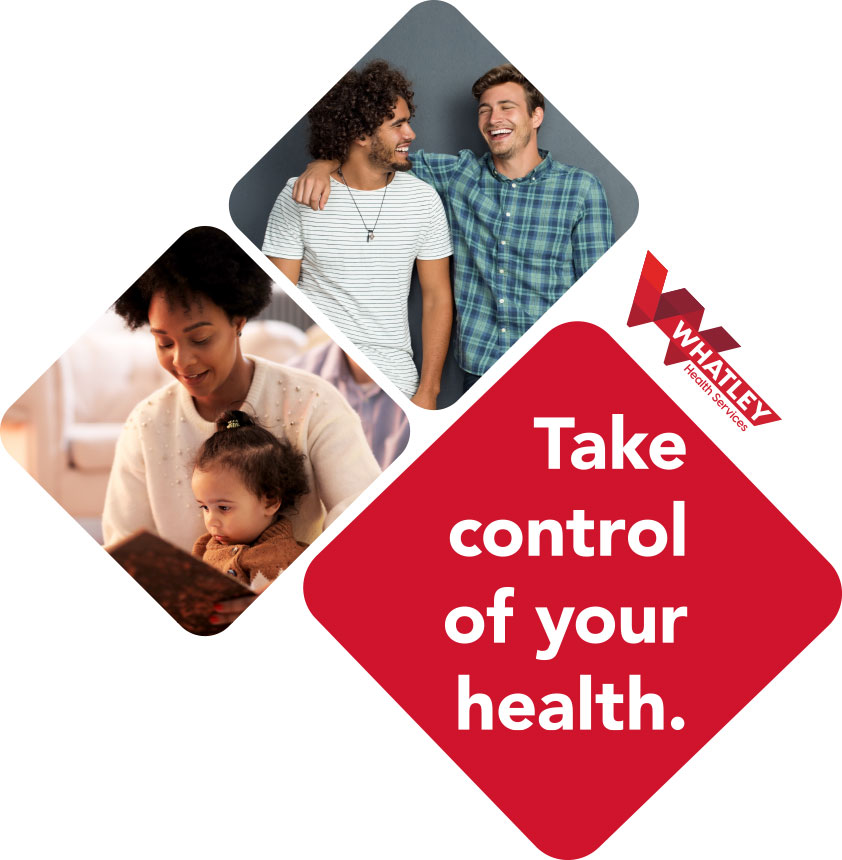

Hepatitis C Frequently Asked Questions
Hepatitis A, hepatitis B, and hepatitis C are liver infections caused by three different viruses. Although each can cause similar symptoms, they are spread in different ways and can affect the liver differently.
Hepatitis A is usually a short-term infection. Hepatitis B and hepatitis C can also begin as short-term infections, but in some people, the virus remains in the body and causes chronic (long-term) infection. There are vaccines to prevent hepatitis A and hepatitis B; however, there is no vaccine for hepatitis C.
Continue reading to learn more about hepatitis C and the impacts in can have on health.
Hepatitis C is a liver infection caused by the hepatitis C virus. Hepatitis C can range from a mild illness lasting a few weeks to a serious, long-term illness. Hepatitis C is often described as “acute,” meaning a new infection, or “chronic,” meaning long-term infection.
- Acute hepatitis C occurs within the first 6 months after someone is exposed to the hepatitis C virus. Hepatitis C can be a short-term illness, but for most people, acute infection leads to chronic infection.
- Chronic hepatitis C can be a lifelong infection if left untreated. Chronic hepatitis C can cause serious health problems, including liver damage, cirrhosis (scarring of the liver), liver cancer, and even death.
Currently, there is no vaccine to prevent hepatitis C.
Many people newly infected with the hepatitis C virus don’t have symptoms, don’t look or feel sick, and therefore don’t know they are infected. For people who develop symptoms, they usually happen 2–12 weeks after exposure to the hepatitis C virus and can include:
- Yellow skin or eyes
- Not wanting to eat
- Upset stomach
- Throwing up
- Stomach pain
- Fever
- Dark urine
- Light-colored stool
- Joint pain
- Feeling tired
More than half of people who become infected with hepatitis C virus will develop a chronic infection.
Chronic hepatitis C can be a serious disease resulting in long-term health problems, including liver damage, liver failure, cirrhosis, liver cancer, and even death. It is the most common reason for liver transplantation in the United States.
There were 15,713 deaths related to hepatitis C virus reported to CDC in 2018, but this is believed to be an underestimate.
The following people are at increased risk for hepatitis C:
- People who use injection drugs or did so in the past, even those who injected only once many years ago
- People with HIV infection
- People with certain medical conditions, including those who ever received maintenance hemodialysis and those with persistently abnormal alanine aminotransferase (ALT) levels (an enzyme found within liver cells).
- People who have received transfusions or organ transplants, including those who
- Received clotting factor concentrates produced before 1987
- Received a transfusion of blood or blood components before July 1992
- Received an organ transplant before July 1992
- Were notified that they received blood from a donor who later tested positive for hepatitis C virus infection
- Healthcare, emergency medical, and public safety personnel who have been exposed to the blood of someone who has hepatitis C (through needle sticks, sharps, or mucosal exposures)
- Children born to mothers who have hepatitis C
Yes. If you are infected with the hepatitis C virus, you can spread it to others even if you have no symptoms.
Hepatitis C is transmitted by:
- Sharing personal items contaminated with infectious blood, such as razors or toothbrushes
- Unregulated tattooing
- Sex with an HCV-infected person (an inefficient means of transmission, although HIV-infected men who have sex with men [MSM] have an increased risk of sexual transmission)
- Birth (spread from an infected mother to her baby during birth)
- Sharing needles, syringes, or drug preparation equipment
- Direct contact with the blood or open sores of an infected person
- Exposure to an infected person’s blood through needlesticks or other sharp instruments
Treatment is recommended for all people, including non-pregnant women, with acute or chronic hepatitis C (including children aged ≥3 years and adolescents).
Current treatments usually involve just 8–12 weeks of oral therapy (pills) and cure over 90% with few side effects. The FDA has a list of currently approved FDA treatments for hepatitis C.
HOPE Clinic Appointments
HOPE Clinic is comprised of an interdisciplinary medical team that is committed to providing the highest quality of care with compassion and respect for human dignity as well as a right to privacy.
We provide services for anyone living in Green, Hale, Lamar, Pickens, Sumter, Tuscaloosa, and Walker counties.
If you have questions or would like to schedule an appointment, please call (205) 614-6071.
Please bring the following items to your first appointment:
- Valid photo ID
- Social security card
- Insurance card (if available)
- Address verification (current mail with your name and address on it; this mail must be dated within at least a month of your appointment)
- Income verification (last 4 pay stubs if paid weekly, last 2 pay stubs if paid biweekly, SSI/SSDI income statement); if no income, provide an explanation as into how one is supporting themselves
- Copy of ALL labs
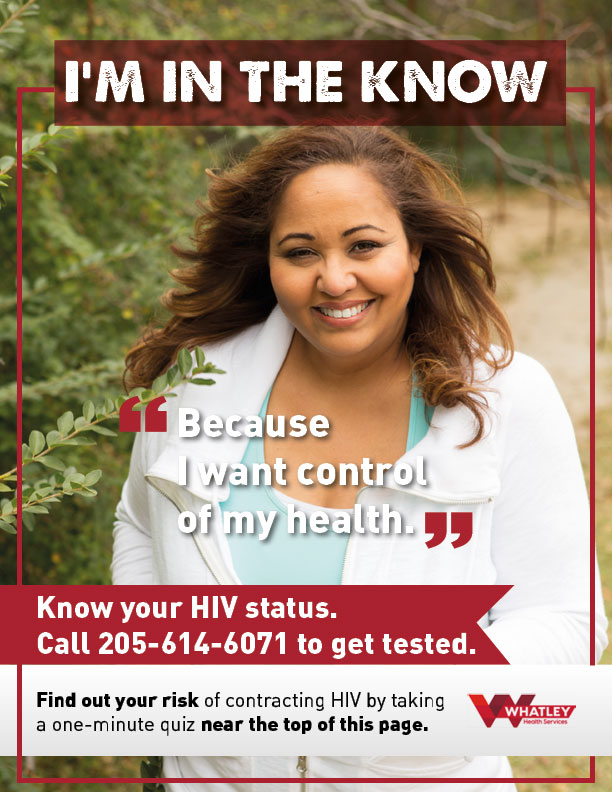
“There is one consolation in being sick; and that is the possibility that you may recover to a better state than you were ever in before.”


